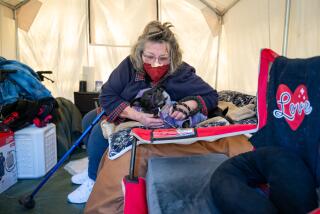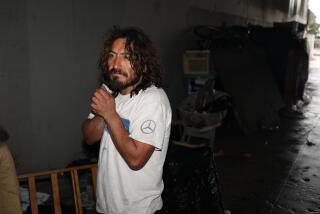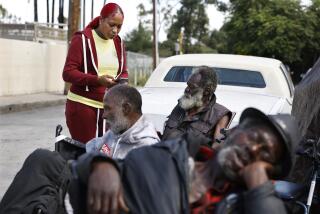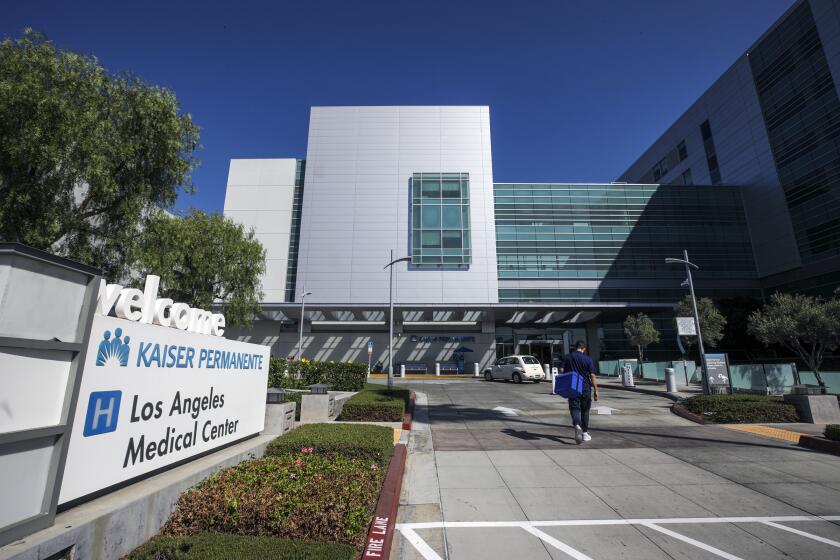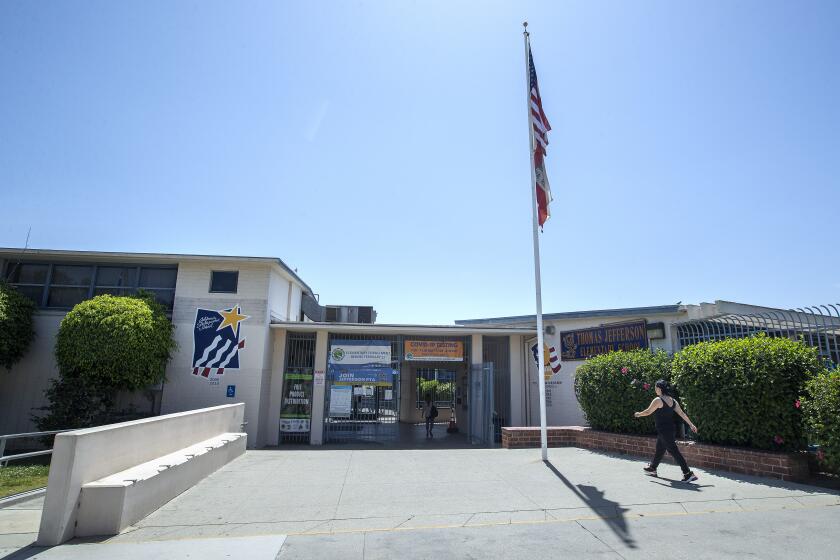‘I’m grateful to have a roof over my head’: Homeless shelter tent opens in San Diego
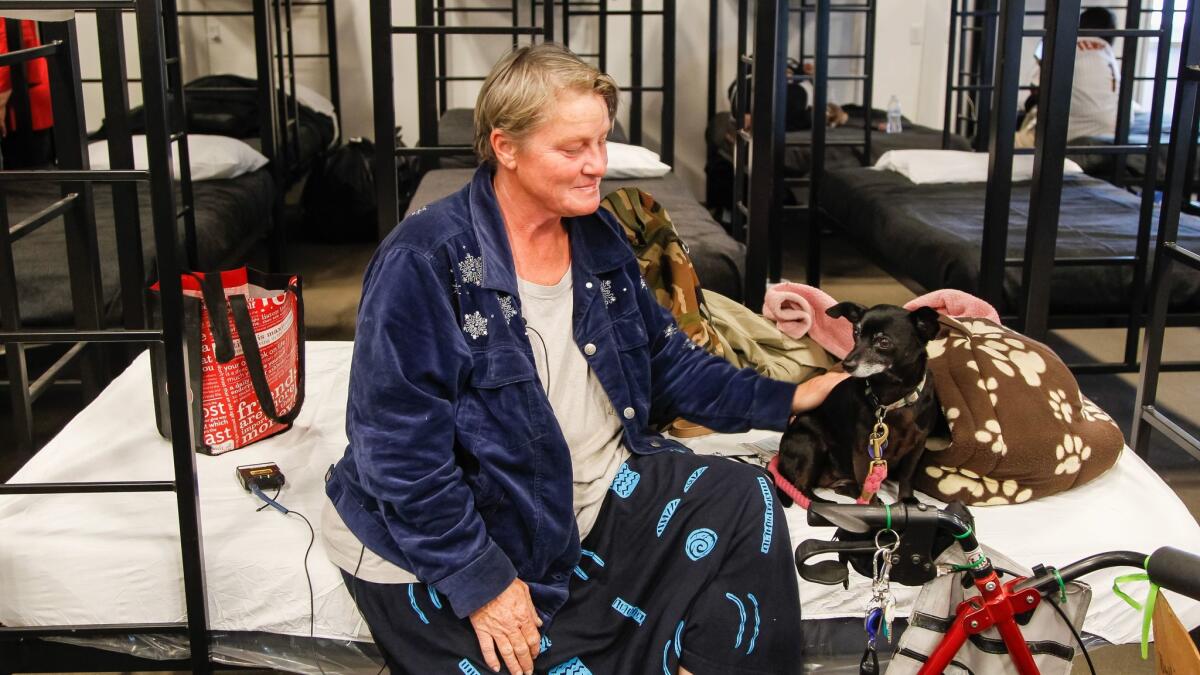
About two dozen women settled into a new temporary home Friday, grateful to be off the street but hopeful their stay would not be long.
“I never planned on being homeless, but I’m grateful to have a roof over my head,” said Sher Sandvik before entering the large tent the Alpha Project was opening on the corner of 16th Street and Newton Avenue near Petco Park.
“I trust the Alpha team,” Sandvik said as her small dog, Snickers, nervously whimpered at her feet. “They’ve been taking good care of us. It’s a good day.”
Sandvik was one of 21 women who arrived at the tent in what Alpha Project President and Chief Executive Bob McElroy called a “soft opening.” McElroy expected the tent to be at capacity with 350 people by the middle of next week.
The large tent was the first of three the city of San Diego plans to open this month, which together will house 700 people.
The opening of the tents marks a return to a similar effort the city abandoned two years ago, when it took down two large tents used for several years as winter shelters and moved the people into rooms at Father Joe’s Village.
Visiting the site of the new tent, which was on the same location as one of the winter shelter tents, San Diego Mayor Kevin Faulconer said there were significant differences between the old and new programs.
“It was the right thing to do, to go into a permanent year-round facility, and this is the right thing to do to get people off the street,” he said about closing the old tents and opening the new ones.
Although the tent closures two years ago supposedly were replaced with an equal number of beds at Father Joe’s Village, the number of people on the street continued to increase, reaching almost 1,300 downtown this year.
A sense of urgency about the problem heightened with the recent hepatitis A outbreak that has left 20 people dead, including 11 homeless people, and sent hundreds to the hospital.
The new tents will provide a safer environment, but they also are intended to serve as a bridge to permanent housing and a place where homeless people can get help with addiction, mental health issues, employment and housing opportunities.
“To have that here in one place, you’re going to see a marked difference,” Faulconer said about how he expected the services to help people make the transition into housing.
The women who arrived Friday had been among 200 people staying at an encampment the Alpha Project had run near Balboa Park since October.
A 31-year-old woman who gave her name only as Victoria was among the arrivals, and she admitted to being a little nervous about the move.
“I wish I could have stayed in the campground,” she said, recalling how she had her own tent and there were large areas where she could mingle with friends or be alone.
“I’m an outdoorsy girl,” said Victoria, who grew up in San Diego. “I’m from California, but I’m really more of a hillbilly at heart.”
Three hundred fifty people will sleep in bunk beds under the same roof, and they will be warm and comfortable, said McElroy, who saw the insulated, enclosed new tent as a significant improvement over the old one.
At 50 feet by 275 feet, the new tent is larger than the old 60- by 100-foot tent, and the heating and air-conditioning are significantly better, McElroy said recalling how the old one often was warm on one side and cold on the other.
“The city had bought a storage tent with no ventilation in it, so it literally would rain condensation on people,” he said. “We had to put plastic across people’s blankets because it was raining inside the tent.”
A laundry and television were not set up yet Friday, but three mobile showers and many portable toilets were on the grounds. Each of the people inside will be given an identification card that will be scanned as they come and go, McElroy said.
Terrie Woolever, who had been living in the encampment near Balboa Park, was so excited about moving into the new grounds that she said she paid $20 for a taxi to take her there so she could be the first in.
“It’s a new future,” she said. “It’s going to be a new life.”
Warth writes for the San Diego Union-Tribune.
More to Read
Start your day right
Sign up for Essential California for news, features and recommendations from the L.A. Times and beyond in your inbox six days a week.
You may occasionally receive promotional content from the Los Angeles Times.
